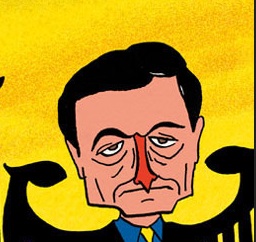Andrea Markuzzo writes: As the 89 year old President of Italy resigns, the party leaders are all likely to find it difficult to impose their preference on the parliamentary groups.
Giorgio Napolitano, Italy’s 89-year-old president, has resigned from the office he has held for nearly a decade. His departure will prompt a secret ballot among parliamentarians to replace him. But this is not likely to be an easy job, since the Italian parliament is currently rife with disagreement and dissatisfaction.
Originally elected in 2006, Napolitano reluctantly accepted re-election in 2013 because a highly polarised parliament could not guarantee the required absolute majority to any successor.
Some believe the Italian presidency is little more than a ceremonial role, but the chief of state is actually assigned substantial powers in the Italian Constitution.
What’s more, Italian governments are traditionally unstable and the political scene notoriously fragmented. There have been 63 governments since 1946, and since the political crisis of the early 1990s, majorities have been more and more fragile, composed of up to 20 different parliamentary groups. Against this backdrop, the president represents a rare centre of institutional continuity.
Napolitano, in particular, has pushed the limits of his authority. He used the highest degree of power on offer to him when trying to bring in effective governance before the debt crisis of 2011-12 and during the hung parliament deadlock that emerged after the 2013 elections.
The prestige of the presidential office naturally attracts some top names to the job and several potentials have been identified in the run up to Napolitano’s departure.
Mario Draghi, president of the European Central Bank, is thought to be a strong candidate,
Romano Prodi, Italy’s prime minister between 1996-1998 and 2006-2008, as well as president of the European Commission from 1999 to 2004 could find support. It will be difficult to find a president with support from a broad range of sources. In fact, the major leaders won’t even been voting in this election. Both Renzi and Beppe Grillo, founder of the radically populist Movimento 5 Stelle, have decided not to run for a parliamentary seat in 2013 general elections, so won’t be eligible to vote. Berlusconi, for his part, lost his seat after being onvicted of tax fraud.
President Renzi has been widely criticised by the traditional left for his attempts to give the Democratic Party a business-friendly image, and Grillo is facing growing criticism for the lack of internal democracy in the Movimento 5 Stelle. In Forza Italia, some accuse Berlusconi of taking care of his own interests above those of the party he founded.
The eventual winner will work with Renzi and his ministers on the final parliamentary passage of two crucial political reforms. A new electoral law should introduce a second round between the two largest parties to make sure one has a super-majority of 55% of the seats.

